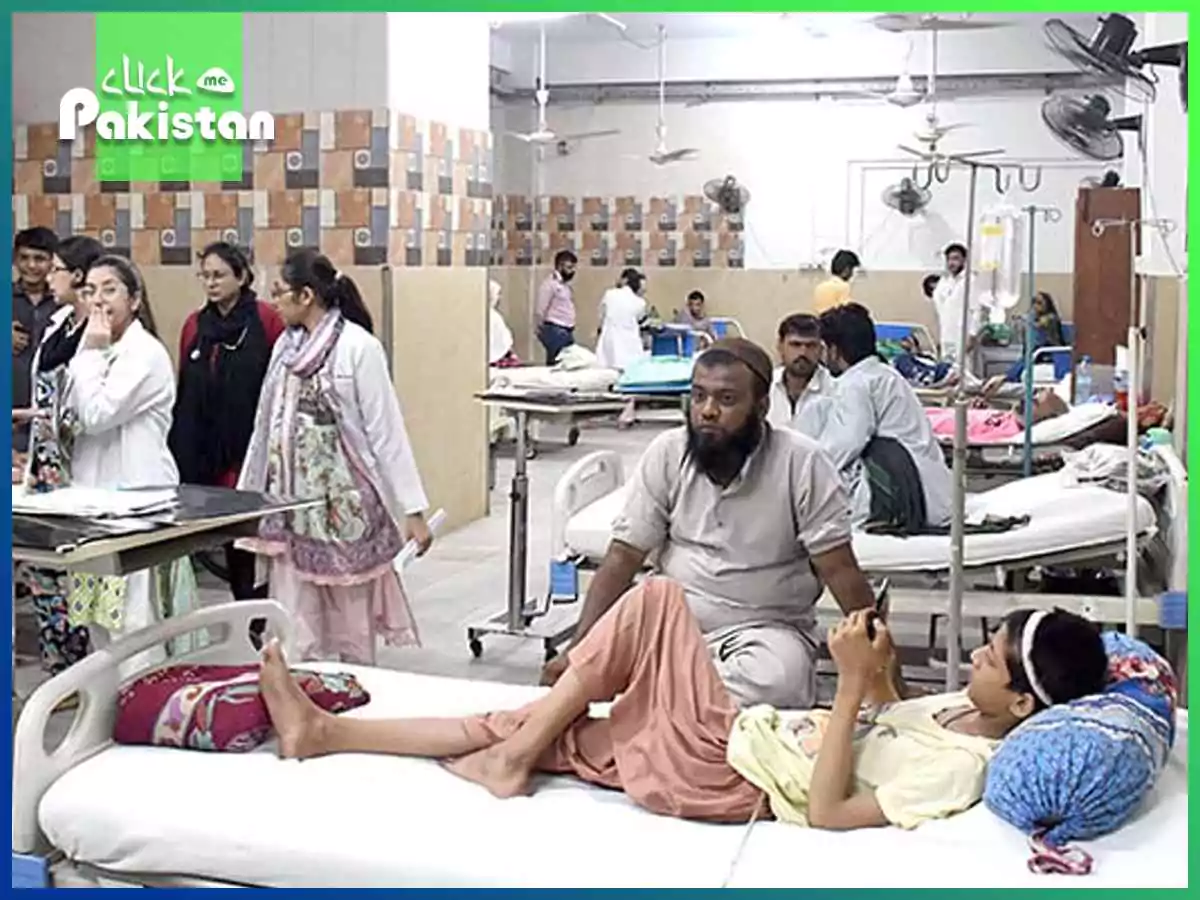One of the biggest and most populated cities in Pakistan, Karachi, is currently experiencing a severe heatwave that has forced over 70 people to be hospitalized for heat related diseases. The city’s healthcare system is severely taxed by the high temperatures, therefore locals are advised to take the appropriate safety measures to protect their health.
The Heatwave’s Effects

The temperatures in Karachi have reached previously unheard-of levels in recent days, regularly rising above 40 degrees Celsius (104 degrees Fahrenheit). In addition to making daily living difficult, this intense heat has created major health hazards, especially for vulnerable groups like the elderly, young children, and people with pre-existing medical illnesses.
Heat Related Conditions
Heat related ailments can vary in severity, from minor ailments like heat cramps and rash to more serious and even fatal disorders like heat exhaustion and heat stroke. Among the most typical symptoms are:
⦁ Heat related Rash: Tiny, red pimples on the skin that are frequently painful and itchy.
⦁ Heat cramps are excruciating spasms of muscles, mainly in the belly or legs.
⦁ Heat exhaustion can cause weakness, lightheadedness, nausea, dizziness, and fainting, among other symptoms.
⦁ HFheaeat related stroke is a serious illness characterised by a body temperature higher than 40 degrees Celsius, disorientation, a fast heartbeat, and sometimes unconsciousness. This needs to be treated medically right now.
Healthcare Response and Hospitals
Hospitals in the area have noted a marked rise in patients seeking care for symptoms brought on by the heat. Many of the more than seventy hospitalised patients had heat exhaustion or heat related stroke, which can swiftly worsen if treatment is delayed.
Healthcare personnel are managing the inflow of patients by working around the clock. Among the emergency actions are:
⦁ Intravenous fluids are given as part of hydration therapy to prevent dehydration.
⦁ Cooling techniques: To reduce body temperature, use cooling blankets, ice packs, and air conditioning.
⦁ Monitoring and Support: To stabilise patients, supportive treatment is provided along with ongoing monitoring of vital signs.
Public Health Guidance

To assist locals in enduring the intense heat, the local government and health authorities have released the following advisories:
- Keep Yourself Hydrated: Sip lots of water all day long. Steer clear of sugary and caffeinated beverages as these can cause dehydration.
- Avoid Direct Sunlight: During the hours of greatest heat (10 AM to 4 PM), stay inside. If you must go outside, dress comfortably in light colours and with a wide-brimmed hat.
- Use Sunscreen: Use a high-SPF sunscreen to shield your skin from damaging UV radiation.
- Cool Down: Use fans or air conditioning to keep your living areas cool, and take chilly baths or showers.
- Identify Symptoms: Recognise the warning signs of illnesses brought on by the heat and seek medical attention if you or someone else exhibits them.
Conclusion
The recent heatwave in Karachi serves as a sobering reminder of both the increasing effects of climate change and the value of being ready for unexpected weather. In order to lessen the negative effects of the heat, community support and adherence to public health norms are essential as the city moves through this difficult time. The extreme heatwave that Karachi is currently experiencing highlights the critical need for education and preventative actions to avoid heat related illnesses. With more than 70 people admitted to the hospital, it is critical for locals to be aware of the dangers, identify the symptoms, and abide by public health recommendations in order to keep safe. The impact of this extreme weather event can be greatly reduced with community participation and adherence to safety precautions, while the city’s healthcare system works relentlessly to manage the situation. Karachi’s citizens can better safeguard themselves and their loved ones during this trying time by being aware and organized.
It is advised of the locals to follow weather-related updates and medical specialists’ advice. The community can collaborate to lower the prevalence of heat related illnesses and guarantee everyone’s safety and wellbeing by adopting preventative measures.
We can get through these difficult times and shield our communities from the damaging effects of excessive heat by being knowledgeable and ready. Be careful and mindful of your surroundings!









